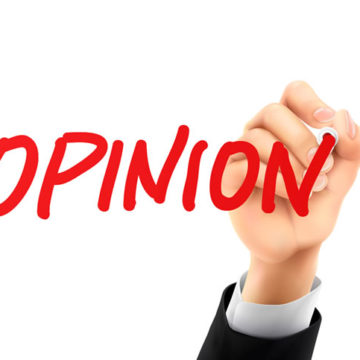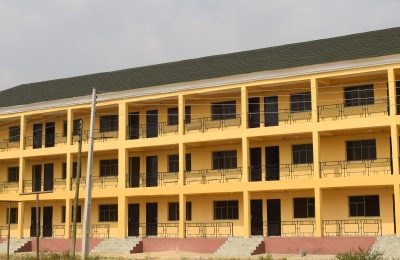

THE owner of the body does not say that he is in no pain, while we insist on commiserating with him for his sleeplessness and his restlessness. (One does not commiserate with a person who does not admit his/her misfortune) Nigeria, a land once rich with promise, now stands as a testament to the collapse of its own institutions. The emblematic “N” that once symbolised pride, resilience, and functionality in institutions like Nigerian Airways, Nigerian Railway, NITEL (Nigerian Telecommunications Limited), Niger Dock, Nigerian Hospitals, and Nigerian schools has become a cruel reminder of the past. These once-formidable pillars, which were the heartbeat of national development, are now shadows of their former selves, barely clinging to a semblance of operation. The sense that “Nothing with ‘N’ wants to work anymore” is no longer a mere figure of speech but a grim reality for millions of Nigerians. The decline of these institutions is not an isolated incident but a symptom of a deeper, systemic rot. This rot has gradually, yet decisively, seeped into the country’s political, social, and economic fabric. It’s a rot that manifests itself in dysfunctional systems, institutionalized corruption, a collapsed infrastructure, and a public trust that lies in tatters. Nigerians now live in a reality where failure is the expected norm, while success is viewed with suspicion or as a fleeting anomaly.
In the past, Nigerian Airways proudly carried the nation’s name across the skies, symbolizing Nigeria’s aspiration to be a key player on the African and global stage. Today, that institution is a distant memory, grounded by neglect and financial mismanagement. Similarly, the Nigerian Railway, which once connected communities and enabled trade, now exists only in fragments. Abandoned tracks and rusting train stations serve as relics of a bygone era, when public infrastructure was both accessible and functional. NITEL, once Nigeria’s telecommunications lifeline, has also been relegated to the history books. Where the institution could have driven Nigeria’s communication revolution, it instead became a casualty of poor management and eventual privatization. The result? An ineffective monopoly that stifled innovation, ultimately giving way to private companies that now fill the void it left behind. The “N” in NITEL, once a badge of honor, has come to represent the larger Nigerian paradox: an inability to sustain what should have been sustainable. Perhaps one of the most tragic aspects of Nigeria’s institutional collapse is the normalization of dysfunction. We’ve grown accustomed to the absurd and even laugh at it to dull the pain. Public hospitals are poorly equipped and often lack even the most basic supplies, forcing patients to buy their own medical necessities. Schools once celebrated for producing brilliant minds now struggle with dilapidated buildings, unpaid teachers, and non-existent resources.

Citizens have learned to expect failure. A system that should be predictable has become anything but—an enigma that functions sporadically, as if by accident. Basic amenities are unreliable: electricity supply is erratic, roads are death traps, and water is scarce. It’s a daily struggle for survival where people adapt to chaos, as if it were normal, rather than demand what should be standard. The paradox of Nigeria lies in its immense wealth juxtaposed against the grinding poverty experienced by its citizens. Nigeria is one of the wealthiest nations in Africa, endowed with vast oil reserves, natural resources, and a population rich in talent and ambition. Yet, this wealth has consistently failed to translate into improved living standards for the majority of its people. Instead, it has fueled a culture of corruption, where public funds vanish into private coffers, and economic policies cater to the wealthy elite. The culture of impunity in Nigeria is pervasive. The powerful operate above the law, emboldened by a system that rewards rather than punishes corrupt practices. For instance, public officials with a history of looting state resources continue to hold positions of authority. Corruption is so deeply entrenched that it has eroded the fabric of institutions designed to uphold justice and protect citizens. The judiciary, once a symbol of hope and fairness, is now often viewed as a tool for those in power. The police force, meant to ensure security, is more commonly associated with extortion and intimidation than with protection.
The collapse of Nigeria’s institutions has had a devastating impact on the daily lives of its citizens. Basic services, which are taken for granted in many countries, are scarce and unreliable. Healthcare is a privilege rather than a right, with hospitals struggling to operate amid scarce funding and poor infrastructure. Education, a pathway to a better future, is in shambles, with overcrowded classrooms, unpaid teachers, and a curriculum that fails to equip students for the modern world. Public transportation is almost non-existent, with dilapidated roads and non-functional railways hampering movement and stifling economic growth. These challenges, compounded by a lack of reliable infrastructure, have stunted economic development. Small businesses suffer under the weight of high costs and limited access to resources, while the job market offers little for a growing youth population desperate for work. Every sector has been touched by the rot, from agriculture to industry, creating a cycle of poverty that is difficult to escape. The situation in Nigeria may be dire, but it is not without hope. Reversing the decline of Nigerian institutions will require a complete reimagining of governance, one that prioritizes accountability, transparency, and the welfare of citizens above all else. This cannot be achieved without concerted efforts to address the root causes of institutional failure.
It is imperative that Nigerians hold their leaders accountable. This means pushing for transparency in government spending, ensuring that public officials answer for mismanagement, and creating systems that prevent corruption. Civil society, media, and community groups must continue to amplify calls for accountability and mobilize the population to demand reform. A key step in reversing institutional collapse is building resilient, autonomous institutions that can operate independently of political interference. Nigeria needs strong public sector institutions with clear mandates, adequate funding, and leadership committed to long-term growth rather than short-term gain. Establishing checks and balances, especially within key sectors like the judiciary, police, and electoral bodies, will be critical in restoring public trust. Good governance is the backbone of functional institutions. Leaders at all levels must embody a commitment to serving the public, upholding the rule of law, and implementing policies that benefit all citizens, not just the privileged few. Embracing a culture of integrity and meritocracy will pave the way for leaders who are both capable and accountable. Education and healthcare are foundational to national development. Revitalizing these sectors will ensure that future generations have the knowledge and health to contribute meaningfully to society. Adequate funding, capacity-building, and reforms that prioritize access, quality, and inclusivity will be crucial to their success The failures of centralized, top-down governance in Nigeria underscore the need for localized, community-driven solutions.
By empowering communities to take charge of their development, Nigeria can build resilient grassroots institutions that operate independently of federal dysfunction.
Community-based development initiatives can help address local challenges and foster a culture of ownership and accountability at the grassroots level.
The “N” in Nigeria once stood for something grand—a national vision of unity, progress, and strength. But as these ideals have eroded, so too has the efficacy of the institutions that once bore the “N” with pride. Yet, while these institutions may be broken, the spirit of the Nigerian people remains unbroken.
Reclaiming the “N” in Nigeria is about more than just rebuilding institutions; it is about restoring faith in the possibility of a functional, fair, and prosperous society. It is about rejecting the culture of impunity and demanding a future where everyone, not just the elite, has a stake in the nation’s success. It is a call for action, for accountability, and for a return to values that transcend personal gain.
The future of Nigeria hangs in the balance. As citizens, it is up to us to demand change, to hold our leaders accountable, and to play an active role in building the Nigeria we wish to see. Only then can we break free from the cycle of failure and usher in a new era of hope, integrity, and renewal—a future where once again, the “N” in Nigeria stands for something that truly works.
A local axiom says a cripple does not block the road with his legs, literally meaning that a person with a handicap should not challenge those who are not handicapped, can a handicapped Nigeria win—Only time will time.
- Dickson, PhD, is Team Lead, The Tattaaunawa Roundtable Initiative (TRICentre)
READ ALSO: Bode George to Sanwo-Olu: Regulate street trading, don’t treat traders like criminals








